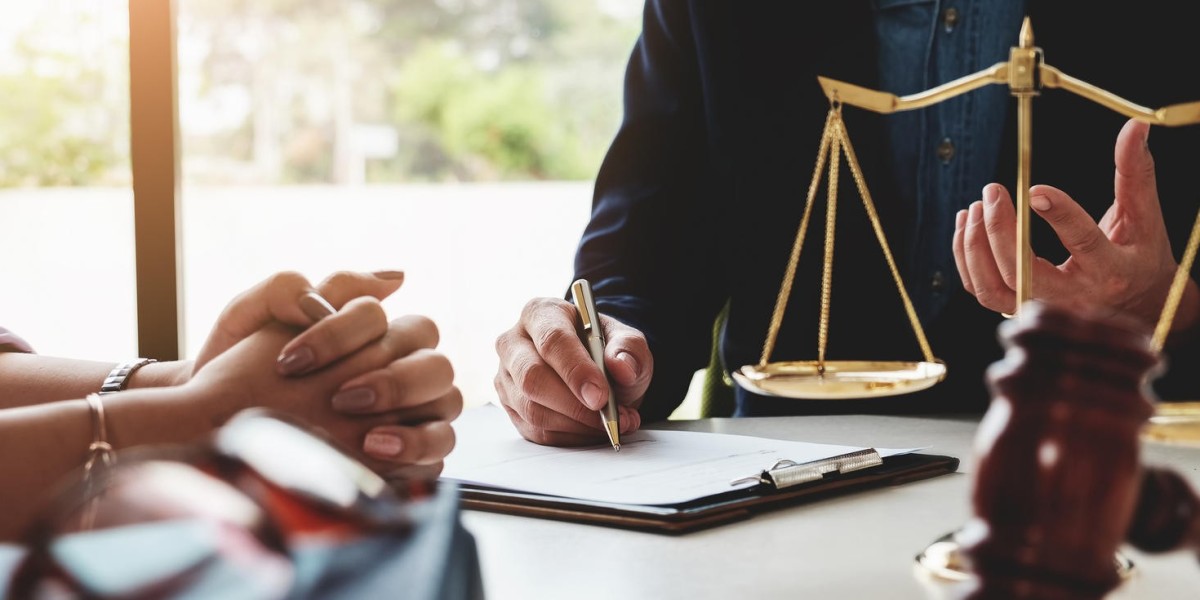Navigating the aftermath of an accident can be overwhelming, especially when it comes to dealing with injuries, medical bills, and insurance claims. Consulting a personal injury lawyer can help you understand your rights and take the necessary steps toward receiving fair compensation. Proper preparation for your first meeting with a personal injury lawyer in Orlando is crucial for a productive and efficient consultation. This guide will provide a comprehensive overview of how to prepare for this important meeting.
Understanding the Importance of Your First Meeting
Why Meeting a Personal Injury Lawyer is Crucial
Meeting a personal injury lawyer is essential because they can:
- Evaluate the strength of your case.
- Explain your legal rights and options.
- Help you understand the compensation you may be entitled to.
- Provide guidance on the next steps.
What to Expect During Your First Meeting
During your first meeting with a personal injury lawyer, you can expect to:
- Discuss the details of your accident and injuries.
- Review any documentation and evidence you have gathered.
- Ask questions about the legal process and your case.
- Receive an initial assessment of your case's viability.
Preparing Your Documentation
Medical Records and Bills
Your medical records and bills are critical pieces of evidence. They demonstrate the extent of your injuries and the costs associated with treatment. Make sure to bring:
- Medical reports from your doctors and hospitals.
- Bills for medical treatments, medications, and any other related expenses.
- Receipts for any out-of-pocket expenses related to your injury.
Police Reports
If your injury resulted from an accident, a police report could provide crucial information. This document typically includes:
- The details of the accident.
- Witness statements.
- Any citations or violations issued at the scene.
Insurance Information
Bring all relevant insurance information, including:
- Your insurance policy.
- Correspondence with your insurance company.
- Any claims you have already filed.
Photographic Evidence
Photographs can be powerful evidence in personal injury cases. Bring photos of:
- The accident scene.
- Your injuries.
- Property damage.
Witness Information
If there were witnesses to your accident, their statements could be invaluable. Bring:
- Contact information for any witnesses.
- Written statements, if available.
Employment and Income Information
If your injuries have impacted your ability to work, bring documentation that shows:
- Your employment status.
- Income statements.
- Documentation of any time you have missed from work due to your injuries.
Organizing Your Information
Creating a Case File
Organize all your documents into a case file. This will help you present your information clearly and efficiently to your lawyer. Consider using:
- A binder with labeled sections.
- Digital files organized into folders.
Summarizing Your Case
Prepare a summary of your case that includes:
- A timeline of events leading up to and following the accident.
- Key details about the accident and your injuries.
- A list of your expenses and losses.
Questions to Ask Your Lawyer
About Their Experience and Expertise
Understanding your lawyer’s background can help you feel more confident in their abilities. Consider asking:
- How long have you been practicing personal injury law?
- Have you handled cases similar to mine before?
- What is your success rate with personal injury cases?
About the Legal Process
It’s essential to understand what to expect moving forward. Ask questions such as:
- What is the typical process for a case like mine?
- How long do you expect my case to take?
- What are the potential outcomes?
About Fees and Costs
Understanding the financial aspect of your case is crucial. Inquire about:
- How do you charge for your services? (Contingency fee, hourly rate, etc.)
- Are there any upfront costs I should be aware of?
- What other expenses might I incur?
About Your Case
Finally, ask specific questions about your case, such as:
- What are the strengths and weaknesses of my case?
- What additional information or documentation do you need from me?
- How can I help to strengthen my case?
Understanding the Legal Process
Initial Consultation
The initial consultation is your first meeting with the lawyer. It’s an opportunity for both you and the lawyer to evaluate whether you’re a good fit to work together. Be prepared to discuss the details of your accident and injuries in depth.
Investigation and Evidence Gathering
Once you decide to work together, your lawyer will begin investigating your case. This may involve:
- Collecting additional evidence.
- Interviewing witnesses.
- Consulting with experts.
Filing a Claim
Your lawyer will file a claim with the relevant insurance company or parties responsible for your injury. This process involves:
- Preparing legal documents.
- Negotiating with insurance adjusters.
- Seeking a fair settlement.
Negotiation and Settlement
Most personal injury cases are settled out of court. Your lawyer will negotiate on your behalf to reach a settlement that adequately compensates you for your injuries and losses.
Litigation
If a fair settlement cannot be reached, your case may go to court. This involves:
- Filing a lawsuit.
- Presenting your case to a judge and jury.
- Seeking a verdict in your favor.
Tips for a Successful First Meeting
Be Honest and Transparent
Honesty is crucial when discussing your case with your lawyer. Provide accurate and complete information to help your lawyer build a strong case.
Be Prepared to Answer Questions
Your lawyer will ask detailed questions about your accident and injuries. Be ready to provide clear and concise answers.
Bring a Support Person
Consider bringing a trusted friend or family member to your meeting. They can provide support and help you remember important details.
Take Notes
Taking notes during your meeting can help you remember key points and next steps. This will be valuable as you move forward with your case.
Final Thoughts
Preparing for your first meeting with a personal injury lawyer in Orlando is a critical step in seeking compensation for your injuries. By gathering and organizing your documentation, preparing questions, and understanding the legal process, you can ensure a productive and efficient consultation. Remember to be honest, transparent, and prepared to discuss your case in detail. With the right preparation, you can set the foundation for a successful personal injury claim and work towards receiving the compensation you deserve.



